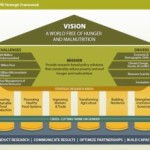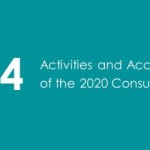Date: November 26, 2013
Location: Brussels
Resilience-building for improved food security and nutrition requires urgent action and integrated, multi-stakeholder approaches, said speakers on November 26, 2013, at a high-level panel during the European Development Days (EDD) 2013 forum in Brussels. The panel on "Resilience-building for improved food security & nutrition: From policy engagement to sustained change," moderated by BBC journalist Zeinab Badawi, was jointly organized by the Technical Centre for Agricultural and Rural Cooperation (CTA), the International Food Policy Research Institute (IFPRI), and the PanAfrican Farmers’ Organization (PAFO).
Florence Chenoweth, Minister for Agriculture in Liberia, drew attention to past decisions of national agencies and governments to reduce spending on agriculture, noting that “this is what has come to haunt us.” She called for increased attention to reducing the burden on women in agriculture through improved inputs and tools, as well as a stronger focus on issues of land ownership. Farmers in Liberia do not face problems growing small patches of crops, said Minister Chenoweth, but instead lack the formal rights to land required to grow long-term crops, a necessary investment for increased resilience.
Ernest Ruzindaza, Permanent Secretary of the Ministry for Agriculture and Animal Resources in Rwanda, reiterated the importance of committing public finances to agricultural growth, as several African countries have done through the Comprehensive Africa Agriculture Development Programme (CAADP). Rwanda’s efforts to build resilience for food and nutrition security have also focused on investing in people: “For resilience-building, a people-centered development approach is key. If you want to build resilience for your people, you need to invest in them,” said Mr. Ruzindaza. This kind of investment requires a multi-sectoral approach, demonstrated through Rwanda’s integrated plan for food security and nutrition that brings together the ministries of agriculture, finance, local government, health, education, and gender.
Joe Costello, Ireland’s Minister for Trade and Development, noted that resilience is “one of the greatest priorities for all of us” and is about linking up situation from catastrophe to recovery, rehabilitation, and development. This requires building up both the humanitarian side as well as the structures and support mechanisms for prevention and response, elements which are central to moving policy forward according to Minister Costello
Moving the policy agenda forward for food security, and ensuring that it is addressed in the post-2015 framework, requires going back to the root causes of food insecurity, according to Marcus Cornaro, Deputy Director-General of the Directorate-General for Development & Cooperation – EuropeAid. The European Commission plans to put food, nutrition, and rural development at the center of its next programming cycle by using a more evidence-based approach to strategically partner with countries that have a track record of being food insecure. As Mr. Cornaro said, “if we look at what the European Union is currently doing, we are quite good at helping countries to bounce back, but I think the agenda for today is how to bounce back better.”
Kalilou Sylla, Executive Secretary of the Network of Farmers’ and Agricultural Producers’ Organisations of West Africa (ROPPA), emphasized the need to identify the major sources of shocks for farmers and, in turn, appropriate responses. Smallholder farmers have been hit particularly hard by market and price shocks and resilience-building efforts should focus on these issues, said Mr. Sylla. He emphasized the significant role smallholder farmers play in the private sector: “if you look at the real investments on the ground… the smallholder farmer is the main investor in Africa.”
Stephan Tanda, Managing Board Member of Royal DSM, also emphasized the role of the private sector in building resilience for improved food security and nutrition. He said the private sector is “an indispensable partner in providing nutritious food.” Public-private partnerships, like those that Royal DSM is piloting in Rwanda, can help local producers improve the micronutrient content of their products and help governments provide more nutritious food to millions of hungry people every year. These efforts must start with policy, said Mr. Tanda, as a strong national plan is essential to make a country nutrition-resilient.
Strong government commitment and leadership is key, agreed Michael Hailu, Director of CTA. He noted that it is equally important to “engage local communities and have indigenous knowledge of communities contribute to resilience-building.” CTA brings together a range of stakeholders, from policymakers to farmer organizations to donor communities, in all of its work. For example, CTA used participatory mapping tools with indigenous communities to help incorporate local knowledge into land-use planning and climate change adaptation programs.
Shenggen Fan, Director General of IFPRI, described the market and environmental shocks that global and national food systems have faced for the last several years. He said that people, whether poor consumers or poor farmers, deserve nutritious food but “unfortunately, for the last seven or eight years, access to nutritious food has not been secure… These vulnerabilities will continue if we do not take quick actions.” Dr. Fan noted that youth can play a significant role in transforming the agriculture sector in Africa, but they need improved access to land as well as financial and technical services. He also pointed to the unique role played by research organizations in addressing knowledge gaps related to resilience-building and bringing attention to areas that require further research support.
The current discussions surrounding the post-2015 agenda offer an opportunity to ensure that resilience is addressed. As the panelists agreed, moving from commitments to policy engagement to sustained change will require strong leadership by national governments, improved delivery mechanisms, and partnerships across sectors.
Reported by Laura Zseleczky, Senior Research Assistant, 2020 Vision Initiative





